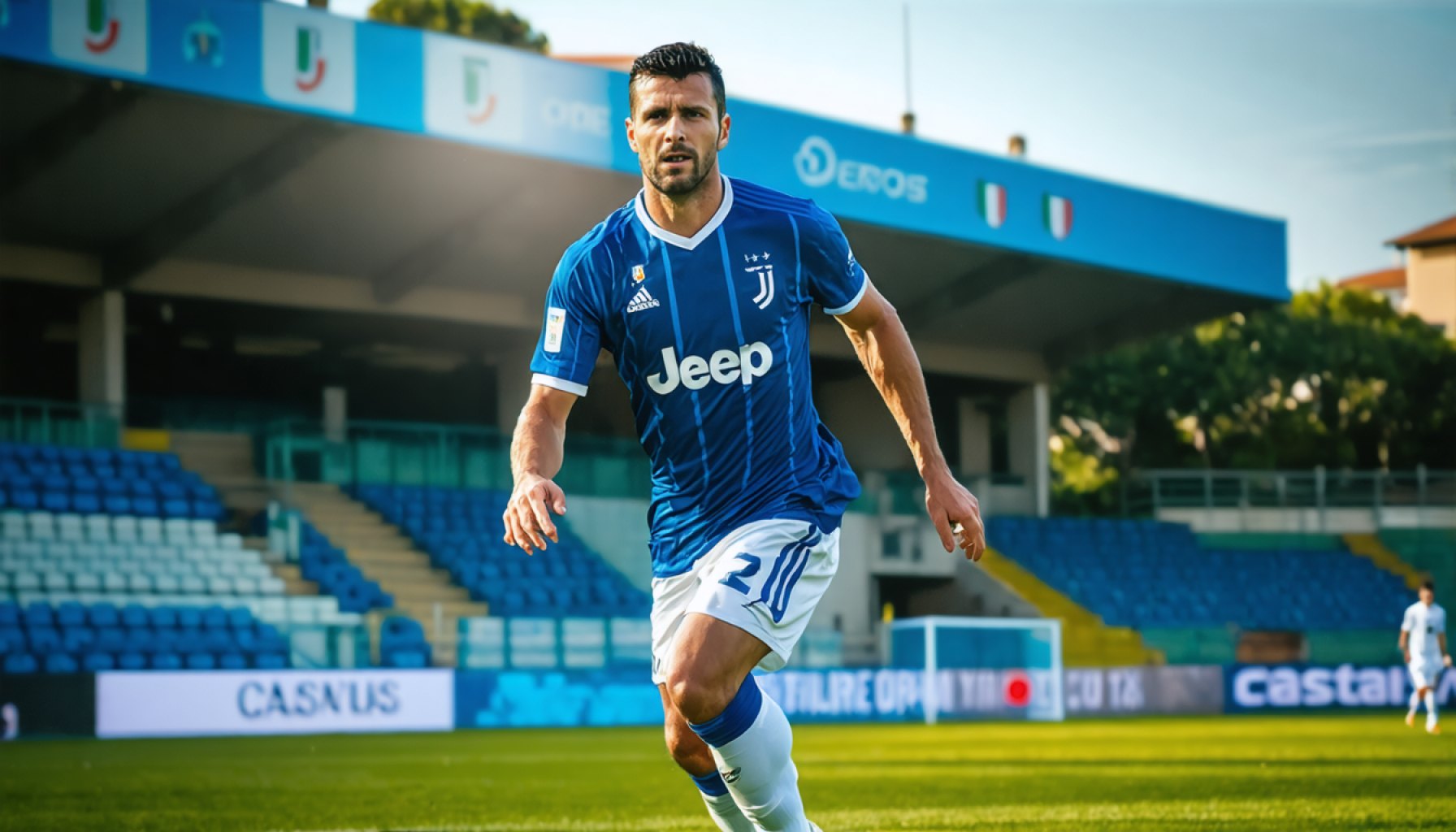- Juventus and manager Thiago Motta part ways after intense meetings and unmet expectations.
- Motta returns to his peaceful sanctuary in Cascais, Portugal, to find solace and reflection.
- The split is influenced by Juventus’s desire for continuous victory and resilience in leadership transitions.
- The situation highlights the relentless nature of professional sports and the personal stories behind managerial changes.
- Cascais offers Motta a much-needed respite, embodying the human aspect of the football journey.
Amidst the fervor of international football breaks, a dramatic chapter in Italian soccer unfolds. The iconic Juventus, famously known as “La Vecchia Signora,” parts ways with its latest maestro, Thiago Motta, revealing a nuanced narrative woven through fiery meetings and reflective retreats.
Picture a young, dynamic manager, harnessing his Italo-Brazilian roots, steering the helm of one of football’s most storied clubs. Yet, amidst the echoes of clashing dreams and expectations unmet, silence and resolve greet the end of Thiago Motta’s Juventus journey. After a whirlwind day cloaked in intense dialogue with Juventus’s leadership, the former midfielder realizes this chapter is destined for closure.
In the aftermath of this decision, Motta seeks solace in a familiar sanctuary—his home in Cascais, Portugal. The picturesque coastal town offers the serenity he seeks. Cascais, with its golden shores and calming breezes, has earned a reputation as more than a mere getaway; it’s a bastion of peace for Motta. Nestled in this tranquil haven, amidst vibrant family moments, the past season’s turbulences drift away on the Atlantic winds.
This unexpected crossroads for Motta, while seemingly abrupt, serves as a stark reminder of the relentless tides in professional sports. For Juventus, a club that prizes victories as its lifeblood, the mutual understanding with Motta crystallizes into an inevitable split after an unyielding boardroom debate. Convincing responses elude Motta during fiery exchanges, sealing his fate as the club searches anew for guidance.
The take-home lesson we witness here is one of vulnerability and resilience — the tale of a manager who maneuvers gracefully through transition, embracing a new personal chapter amidst professional upheaval. For clubs like Juventus, seeking continuous triumph, every decision is a gambit on the grand stage of football, painted with human stories. And for those who stand at the helm, every departure may just be a timely pause, offering perspective under the sun-kissed skies of places like Cascais before a promising return.
Indeed, the beautiful game writes its most compelling stories not just in victories or defeats on the field, but in the human experiences that underscore every play.
The Untold Story Behind Thiago Motta’s Departure from Juventus: Unraveling the Drama
Inside the Story: Why Thiago Motta’s Exit from Juventus was Inevitable
The sudden exit of Thiago Motta from Juventus has shocked fans and pundits alike, raising crucial questions about what really unfolded behind closed doors. Let’s delve into some additional aspects of this story, combining expert insights and future forecasts to understand the broader implications.
Motta’s Coaching Philosophy: A Blend of Cultures
Thiago Motta has been known for integrating his Italo-Brazilian roots into his coaching style—a fusion of tactical discipline and flair. This unique methodology aimed to steer Juventus into a new era of football. However, aligning this with Juventus’s traditional strategies proved to be challenging. This mismatch in visions underscores why such high-stakes collaborations demand perfect synergy between coaching philosophies and club expectations.
The Pressure Cooker: Juventus’s Unyielding Quest for Victory
Juventus, or “La Vecchia Signora,” has a storied history demanding consistent triumphs. Their fierce pursuit of maintaining dominance in Serie A and European competitions creates an environment where managers have little room for error. Despite Motta’s potential, the immediate need for results posed a relentless trial that both parties found insurmountable.
Life After Juventus: What’s Next for Thiago Motta?
As Motta retreats to the peaceful shores of Cascais, industry experts speculate on his next move. Motta’s tactical acumen and fresh coaching ideas position him well for roles across both European leagues and burgeoning football markets in Asia. Given his young age and international allure, Motta might soon reinvent himself and re-enter the managerial arena with renewed vigor.
How-To Step: Succeeding in High-Pressure Environments
1. Understand Expectations: Whether in sports or business, align your goals with organizational objectives.
2. Adapt Flexibly: Balance your unique vision with established systems to ensure seamless integration.
3. Seek Feedback: Regular dialogue with leadership can provide clarity and direction for both parties.
4. Reflect and Recharge: Like Motta, retreat when necessary to reassess and rejuvenate before taking on new challenges.
Industry Insights: Coaching Turnover and Market Trends
The departure of high-profile managers like Motta sheds light on broader trends in professional football—more managers are facing short stints due to high expectations. Clubs are increasingly seeking quick fixes with managerial changes, despite the potential benefits of long-term strategies.
Key Trend: The Rise of Young Managers
European football is witnessing a wave of younger managers taking the helm at major clubs. As seen with coaches like Julian Nagelsmann and Xavi Hernandez, there’s a burgeoning belief that youthful energy and modern tactics can rejuvenate storied franchises.
Pros and Cons Overview
Pros:
– Innovation: Young managers bring fresh ideas and contemporary methods.
– Engagement: Better relatability with younger players who grew up watching them.
Cons:
– Experience Gap: Lack of managerial longevity can lead to decision-making mishaps.
– Pressure Handling: High stakes and expectations may overwhelm less experienced managers.
Actionable Recommendations
– For Clubs: Establish clear communication channels and set realistic benchmarks for managers to thrive.
– For Managers: Embrace adaptability and foster a collaborative environment with club executives.
Final Thoughts
As the curtain falls on Motta’s Juventus tenure, we’re reminded of the intricate human stories interwoven into the fabric of football. Operating under relentless pressure calls for resilience and adaptability—skills ever more crucial in today’s fast-paced sports landscape.
For more insights on football dynamics and management trends, visit Juventus.
